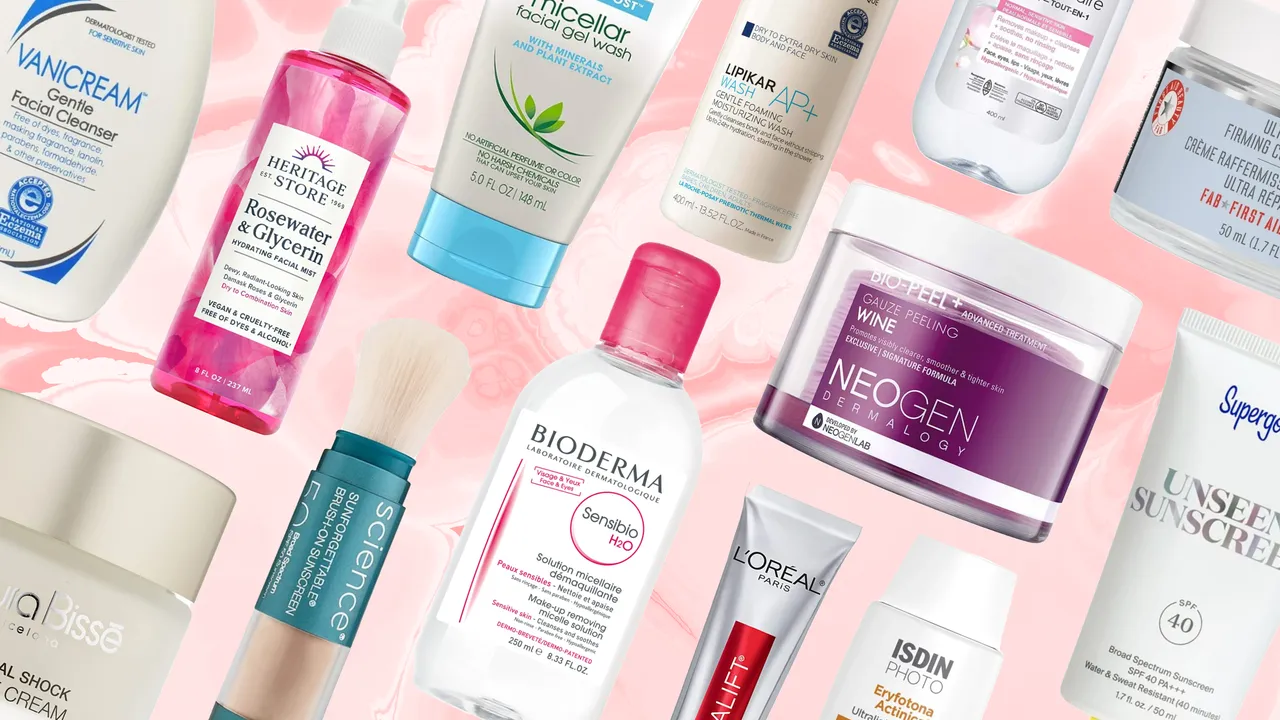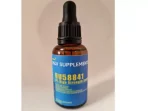Winter is a time when our skin starts to suffer from dryness. It can cause itching, redness, flaking and rashes. Read more wellhealthorganic.com:winter-skin-care-tips-home-remedies-to-keep-your-skin-moisturised
Thankfully, there are several natural remedies to keep your skin moisturized throughout the season. Read on to learn about these effective home remedies that can help hydrate your skin and combat the problems associated with winter.
1. Drink plenty of water
The first step to keep your skin moisturised is to drink plenty of water throughout the winter months. The cold weather and dry air can lead to dehydration, causing the outer layer of the skin to become dried out and cracked.
A healthy and hydrated skin surface looks smoother, suppler and more radiant. This also helps the skin look younger and less wrinkled.
However, this is not just about drinking water – it’s also about using the right products and following a skin care routine that can help to keep your skin looking and feeling its best all year round.
One of the most common things we do wrong in our skin care routines is to over-use harsh cleaners, soaps, and creams that strip away our natural hydrators. These ingredients include alcohol, astringents, alpha hydroxy acids (AHAs) and strong fragrances, which all damage the skin’s moisture barrier and make it more susceptible to dryness.
Therefore, it is important to use cleansers that are formulated for your skin type and contain hydrating ingredients like hyaluronic acid, glycerin or ceramides to lock in the moisture. These products can be applied to your face and hands after a shower or bath, to ensure that your skin is thoroughly nourished.
The next step to keeping your skin hydrated is to avoid hot water for long periods of time, and to apply moisturizers on a regular basis. It is also essential to wear clothing that will prevent the skin from drying out as it comes in contact with colder temperatures and drier air.
In addition to this, it is important to drink plenty of water and eat foods that are rich in nutrients, such as fruits, vegetables and soups. These nutrients can help to maintain your body’s overall health and provide it with the vitamins, minerals, and antioxidants it needs to stay healthy all winter long.
2. Apply glycerine and petroleum jelly on your hands and feet
Winter weather can leave your skin feeling dry and itchy. Fortunately, there are a few easy tips to keep your skin moist and supple this season.
First, drink plenty of water and eat a healthy diet. Dr Ravindra recommends avoiding foods that can dehydrate the body, including meats, cheeses, and dairy products, which can make dry skin worse.
Second, avoid using harsh soaps or detergents that can strip your skin of its natural oils and make it even drier. Instead, use lukewarm water and non-drying soaps.
Third, bathe only as necessary and limit the time you spend in a hot shower. While warm water can feel heavenly on a cold day, it also strips away your skin’s natural oils and increases your risk of dryness.
Fourth, apply a moisturizer immediately after washing your skin to help seal in moisture. If you have acne-prone skin, consider using a thick cream or petroleum-jelly type moisturizer, which will help protect your skin from irritation.
Fifth, use a humidifier in your home. According to the American Academy of Dermatology (AAD), dry air can pull moisture from your skin and can be particularly harsh for sensitive or dry skin.
Sixth, try a natural oil treatment, such as olive or coconut oil, which helps restore the skin’s sheen and protective moisture barrier and can be effective for people with normal to dry skin.
Finally, apply glycerine and petroleum jelly on your hands and feet regularly to keep them smooth and soft. This ointment is effective for keeping your skin hydrated and prevents it from flaking during the winter.
3. Exfoliate your skin regularly
Exfoliating your skin is an important part of your skincare routine. It helps keep your skin hydrated and glowing by removing dead cells that build up over time.
It can also improve blood flow and lymphatic drainage to help detoxify your body. This can reduce the appearance of blemishes and hyperpigmentation, as well as prevent breakouts in the future.
The key to exfoliating your skin is using a gentle cleanser with a natural physical or chemical exfoliator that is designed to remove dead skin cells without leaving your skin dry. This can include a face scrub or a peeling mask.
Choose a scrub that will gently remove layers of dead skin and encourage new cell growth. For example, NIVEA Daily Essentials Gentle Exfoliating Scrub (Shop Now) contains Lotus Flower and Vitamin E to refresh your complexion.
Avoid harsh cleansers that can strip away moisture from your skin, such as those with alcohol or fragrance. Look for gentle cleansers that have a moisturizing agent to balance oil production and hydrate the skin.
Exfoliating your skin regularly can help get rid of blackheads, whiteheads, clogged pores, and acne. It can also remove toxins from the skin and increase circulation, which will boost radiance.
The winter season can be a rough one for your skin. The chilly air, indoor heating, and low humidity levels can all deplete your skin’s natural moisture, making it look dull and dry.
Luckily, it’s easy to stay hydrated and smooth with these tips from Good Housekeeping Institute Beauty Lab scientists and top skincare experts. Here’s how to keep your skin looking radiant through the cold months:
For best results, use a moisturizer immediately after bathing or showering. During the winter, it’s especially important to apply thick creams and lotions containing ceramides, hyaluronic acid, and petrolatum, which lock in moisture and prevent your skin from losing its natural oils.
4. Moisturize your skin regularly
Moisturising your skin regularly is one of the most important steps you can take to keep it healthy, hydrated and youthful. Not only is it essential for keeping your skin soft and smooth, but it can also protect it from blemishes, dryness, sun damage and premature aging!
Winter is a time when your skin loses moisture faster than normal due to a number of factors, including the colder air, less humidity indoors and more exposure to drying chemicals such as chlorine. Moisturizing with humectants and emollients can help your skin retain its natural oils, which makes it more supple and resilient in the colder months.
You can find a variety of humectants, such as glycerin, hyaluronic acid, aloe vera, and urea that are formulated to draw water into your skin and enhance its own hydration. They’re often found in creams and lotions, which make them a perfect addition to your winter skincare routine.
Using a moisturizer that contains these ingredients is essential for maintaining your skin’s elasticity, as well as keeping it smooth and glowing. It also helps your skin’s natural barrier function better and can help prevent itchiness, irritation, and other issues caused by the weather.
If you have dry or cracked skin, don’t wait for it to get worse – this can lead to itching, inflammation, cracks, and a condition called eczema (which is very common during the colder months). It’s best to use a product that contains hyaluronic acid and ceramides – both of which work to strengthen the skin’s natural protective barriers — as soon as you shower in order to prevent these problems from forming.
You can also hydrate your skin after shaving or exfoliating. These processes can strip your skin of its natural oils, so it’s important to use a moisturizer after these treatments.
5. Apply a rich moisturizer
The cold weather, dry indoor air and chilly winds can suck away the moisture from your skin. Hence, it is important to use a rich moisturizer in winter months to keep your skin hydrated and healthy.
There are many home remedies to keep your skin moisturised and supple. For instance, you can apply a glycerin pack on your skin two times a week.
Another effective home remedy for keeping your skin supple is using an aloe vera gel. This natural plant is known to have hyaluronic acid, which helps lock in moisture from the environment.
It is also a good idea to replace your usual body wash with one that contains more moisturizing ingredients. Consider a hydrating cream that can be used on your face hands feet and elbows.
A humidifier is also helpful during the winter. It can help fill in the pores of your skin, replenishing it with the needed moisture and making you feel cosy at the same time.
To avoid over-stripping your skin, limit the number of baths you take daily. Ideally, bathe only once a day, and use lukewarm water.
When you do shower, make sure to apply a moisturizing cream immediately afterward. This will help seal in the absorbed moisture from the air, which will prevent further dehydration.
Some of the best emollient creams for dry skin in winter include Mary Kay Extra Emollient Night Cream, Aveeno Skin Relief Intense Moisture Repair Cream, and Cutemol Emollient Skin Cream. These thick moisturizers are ideal for restoring a youthful glow to your skin and can be used on any part of the body that feels drier. These creams are easy to apply and are enriched with ceramides, oat oil and other nourishing ingredients that make them perfect for dry, dehydrated skin.







